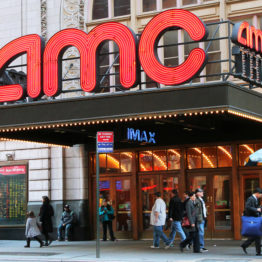
Whether you get to be a “producer” hinges on your ability to raise the monies you need in order to produce your pictures. You can acquire financing via a studio, private investors, production incentives, the pre-sale of all or a portion of your picture’s foreign territories, and by securing bank financing. Some of the aforementioned strategies are more preferable to others, but in the end, all that matters is that you do raise the financing you require and that you are not personally liable for its repayment.
Studio Housekeeping Deals
A “Housekeeping Deal” is an arrangement that the studio makes with a producer it wants on its lot developing and producing pictures for it. The studio gives the producer an office on the lot, pays the producer’s overhead, provides the producer with development financing, and provides production financing when, and if, the studio greenlights the producer’s screenplays for production. To “greenlight” means to commit to finance and produce the picture. Studios have scaled back their Housekeeping Deals. It is unlikely that a studio will offer you a Housekeeping Deal if you are not a producer, actor, or director with a substantial track record. I am not going to discuss the deal terms associated with housekeeping deals herein since they are not a viable financing alternative for most producers.
Studio Development/Production Agreement
A Studio will enter into a Development/Production Agreement (“Development Deal”) if you have the rights to a literary property (books, novels, screenplays, plays, video games, etc.) or a life story that the studio is interested in developing and potentially producing. You can go about this one of two ways: you can align yourself with a production company that has a studio Housekeeping Deal if the production company likes your pitch, or you can pitch directly to the studio’s development department if you have the necessary access. It will probably take longer for you to develop the screenplay with the studio since so many people get involved in the process. Notwithstanding, this may be your only viable option if you lack the financial resources to develop the screenplay yourself, the production budget is apt to exceed what you can raise independently, and know that the literary property is studio-worthy.
The Development Deal is a step deal, which means that the studio proceeds a step at a time. You will have to assign your Option/Purchase Agreement (or Shopping Agreement) to the studio since the studio will not invest the monies required to develop the screenplay if it does not hold the rights to the literary property. Once the studio has the rights to the literary property, it hires writer(s) to develop the screenplay. How much feedback you have on who is engaged to write will depend on your track record and the terms of the Development Deal. Because the studio pays all of the screenplay’s development costs, including the options fees due, it will own whatever versions of the screenplay it develops under the Development Deal. The studio may abandon development and put the screenplay in turnaround at any point in time, or greenlight the completed screenplay for production. Whether the studio greenlights depends on a variety of factors: whether the studio is happy with the screenplay’s final draft; whether the picture’s budget makes sense in light of the picture’s projected revenues and distribution expenses; and whether the producing team can cast the picture and attach a director that satisfies the studio.
You will need to retain legal counsel to help you negotiate and review the Development Deal the studio offers you. I explain the more important development-related terms below. The production and distribution-related terms are in the section that follows.
Engagement
The Development Deal will engage you as the picture’s producer and may include a list of contingencies that must be met in order for the Development Deal to be valid. For example, the studio will make the Development Deal contingent on the studio approving the literary property’s chain-of-title documents.
The Development Deal will state the specifics of the engagement. The studio does not expect you to work exclusively on the picture during its development phase, but will want you on a first-priority basis.
Compensation
There was a time when producers could make a living developing screenplays that never went into production, but that is no longer the case. Today, studios offer a minimal “Set Up Fee” when you enter into the Development Deal. A Set Up Fee is divided among all the producers entering into the Development Deal and will likely be applied against your producing fee. How much of a Set Up Fee you are paid depends on whether you are entering into a Development Deal with a major or mini-major studio. The former tend to offer set-up fees equal to up to $25,000, the latter up to $15,000.
Approvals
The studio may agree to give you the right of joint approval on behalf of the writer that is engaged to write the screenplay but will retain final approval if the studio and you do not agree.
Turnaround Rights
The studio will have the right to abandon the picture at any time. As such, I negotiate for my clients to have a turnaround right on behalf of every screenplay they develop with, option, or sell to, a studio. If the studio decides to not greenlight, then I want my client to be able to take the screenplay (at whatever stage of development it is in) and its underlying literary property elsewhere to be developed and produced. Usually the studios allow the producer 18 months to set up the screenplay elsewhere. The studio will need to be paid its “Buy Out Price, which is usually the cost of developing the screenplay (writers’ fees, set up fee, interest, overhead charges, and purchase price, if it purchased a literary property, etc.) Any studio or production company to whom you shop the screenplay will need to know that it is in turnaround and how much is owed, since the new studio or production company will have to enter into an agreement with the former studio to acquire and pay for the rights to the screenplay and its underlying literary property, if any.
Production
The Development Deal will include terms that will apply if the studio greenlights the picture. I have included those terms in the section that follows.
Studio Production Financing and Distribution Agreement
You are more likely to enter into a Production-Financing-Distribution Agreement (“Production Agreement”) than a Development Deal, since the Studios have dramatically cut down on the number of outside projects they are developing. The Production Agreement is an arrangement whereby the studio puts up production financing in exchange for the right to distribute the picture. Studios take a number of factors into consideration when they contemplate entering into a Production Agreement: the screenplay, the attached elements, the production budget, projected revenues, etc. The screenplay has to be developed, nearly production-ready, commercial, and be a good fit for the studio. The Production Agreement will be contingent on your package, which means that you have to attach the director and bankable cast (unless the picture is genre driven). By “bankable cast,” I mean a cast that will motivate people to purchase movie tickets. It is highly unlikely that any studio will enter into a Production Agreement absent the requisite attachments. Lastly, the picture’s production budget has to make sense for the picture and its projected revenues. When the Studio enters into a Production Agreement with you, it becomes the equivalent of your bank, distributor, and majority partner.
Below I discuss the more important terms included in the Production Agreement. I advise you to seek legal counsel prior to negotiating and entering into this or any other agreement on behalf of your picture.
Engagement of the Producer
When studios enter into Production Agreements, they state what they are financing and for how much, when production commences, and when delivery must be made.
The studio will require the producer to render her services exclusively during all or a portion of the picture’s production. They usually want the producer on an exclusive basis during pre-production and principal photography, and on a first priority basis during post-production.
Fixed Compensation
How much you are offered depends on the picture’s production budget and your experience and stature in the industry. A seasoned producer may be able to negotiate $1 million producing fee whereas a new producer only $250,000. Whenever possible, I attempt to negotiate an agreement that is “favored nations” with the picture’s other producers. “Favored nations” means that no other producer receives better terms. Whether this is possible will depend on who else is on the producing team and the elements you bring to the package.
There are Production Agreements where the producer is paid a fixed sum plus a profit margin. In this scenario, the producer participates in and splits the profit margin with the studio if the producer completes the picture for less than the production budget. Cost overruns will not negatively impact the producer’s profit margin if the studio approves the additional costs and raises the budget accordingly. For example, the studio should agree to raise the production budget if the studio has under budgeted any costs, approves a cost not previously budgeted, or force majeure event causes a production delay. A “force majeure” event is one that is completely out of the producer’s control, such an earthquake or labor strike.
Profit Participation
The profit participation the studio is willing to allocate the producer will depend on the producer’s relationship with a studio and the producer’s track record. The producer may be allocated up to 50% of the picture’s net profits. The producer has to allocate all third party profits from her share of net profits, but can negotiate for a floor of no less than 15%-20%. In other words, the actor’s director’s, screenwriter’s, underlying literary property’s, and other producer’s profits will be deducted from the producer’s 50%, but in no event will the producer be allocated less than the agreed upon floor. My clients have secured a “Gross Proceeds at First Breakeven” profit participation definition, as well as the more commonly used net profits definition. The latter essentially guarantees that the studio will never pay the producer profits of any kind. Producers with a substantial track record, such as Steven Spielberg and Joel Silver will have a more favorable profit definition. At the end of the day, the only parties guaranteed profits are those whose gross profits are calculated at the box office. The Development Deal will include an exhibit that defines how the profits are be calculated and paid.
Producer’s Obligations
You are going to have in your possession agreements that predate the Production Agreement. The studio will require you to turn over those documents to it, such as the Option/Purchase Agreement for the underlying literary property, Work-for-Hire Agreements with the screenwriter(s), the Life Story Agreement (if the screenplay is based on a person), the screenplay’s copyright registration, etc. Because of this, you should always enter into agreements that are assignable to a third-party financier and distributor. The producer will also have to deliver the cast and director she said were attached to the picture, since the picture was greenlit on the basis of those attachments. The studio’s Business Affairs Department will negotiate and paper the talent and directing agreements, but know that the studio will not proceed absent the promised cast and director.
Credit
You will be entitled to a “Producer” or “Produced By” credit both on screen and in paid ads (subject to distributor’s customary exclusions). You may end up sharing the credit on screen with another producer if you have a producing partner, or do not have a track record. I negotiate these credits to be favored nations with the director and writer credits, so that the producer receives his credit in ads whenever the director and writer do (subject to distributor’s customary exclusions). A production company credit may also be possible if you have a production entity.
Approval Rights
The studio is at great financial risk every time it funds a picture’s production and distribution. As such, it will insist on final approval of all financial and creative matters unless your production company has a history with the studio and/or has a substantial track record in the industry. In said case, it is likely that the studio will retain joint approval with the production company with the understanding that the studio will get final approval if the parties cannot agree. If you lack a track record, then it is likely that you will be given the right of meaningful consultation and may even have certain elements pre-approved, such as the screenplay, the director, the principal cast, budget, screenplay, location, and the producer’s right to grant deferments, bonuses, credits, and profit participation allocations. Keep in mind that the studio will have the right to take over the picture if there are production delays and cost overruns.
Production Overages and Takeover Rights
The studio has a great deal of money at risk in the picture’s production, so it includes stopgap measures within the Production Agreement to protect its investment. You will have to provide the studio with ongoing progress reports and estimates of future expenses. If the production exceeds the production budget, or seems like it will, the studio will have the right to approve the overage or to take over the production. It is likely to approve additional expenses when the costs are unrelated to mismanagement and are out of the production’s control, and take over when the costs are incurred due to incompetent or uncooperative behavior, e.g., sick actor or inclement weather versus difficult director or producer.
Cutting and Editing
The producer will have an opportunity to edit the picture. In all likelihood, the producer will deliver the “Director’s Cut” to the studio. The studio will have the right to re-edit the picture unless the director is one of the few afforded the right of “final cut.”
Representations and Warranties
The producer will have to represent and warrant that the picture will not infringe a copyright or the right of privacy or publicity of any third party, and that it has the right to enter into the Production Agreement. In other words, the producer is representing and warranting that he controls the screenplay and its underlying literary or life story via a Work-For-Hire Agreement, Life Story Agreement, or Option/Purchase Agreement. The aforementioned agreements must provide the studio with all of the rights it requires in order to be able to produce, distribute, exhibit and advertise the picture. You will have to indemnify the studio for breaching this clause and the Production Agreement in general.
Completion Bond
The producer will have to purchase a completion bond if the studio is not self-guaranteeing the picture (they usually do). A “completion bond” is a form of insurance that guarantees against the picture not being completed on budget. The completion bond company will review the picture’s production budget prior to bonding the picture. You will have to include at least a 10% contingency in the production budget for cost overruns. The completion bond company monitors the picture’s production, assigns a representative to be on the set if the production starts having issues, and may even take over the picture if it determines that the picture is at risk of going over budget and/or not being completed. The average cost of a completion bond is 5% of the cash budget of the picture.
Additional Insured
The producer should be added as an additional named insured to the studio’s general liability and E&O insurance policies.
Delivery Requirements
The Production Agreement will include a list of all of the “deliverables.” The “deliverables” are the picture’s components that the producer has to submit to the studio upon the picture’s completion. Furthermore, the Production Agreement will also state the agreed upon delivery date, the MPAA rating, and the picture’s running time.
Subsequent Productions
I negotiate for my clients to have the right to participate in subsequent versions of the original picture, such as a sequel, prequel, or television series. Whether you do may be contingent on whether you delivered the picture on budget and are still in the business when the studio decides to produce the subsequent version.
Accounting
The studio will send out periodic statements of the picture’s profits and expenses. It will accord the producer the right to audit the studio’s records once per statement and allow the production company up to two years to object to any given statement. The studio may require approval of the auditor or that the auditor be a nationally recognized accounting firm. I’m opposed to both, since they are hurdles to the audit process. The studio puts you in cue when you notify it that you are auditing. A client recently notified a major studio that she was auditing and was informed that the cue is three years long.









